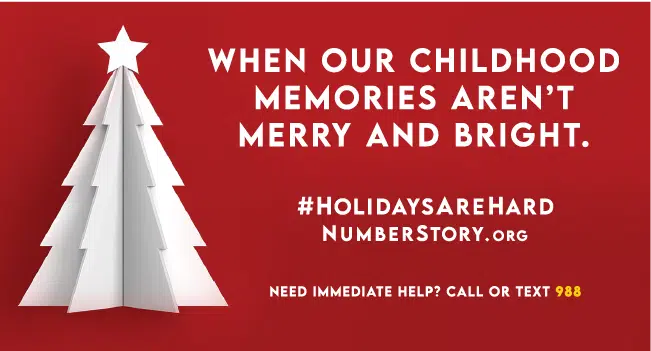
Las Vacaciones Son Duras; Es Hora De Cuidarse
It’s that time of year again, and I am sure you have noticed how fast the Holiday season is taking over stores. For some, this can trigger the body and create stress or dread….
EN LA MIRA
Las Fiestas Pueden Ser Dolorosas
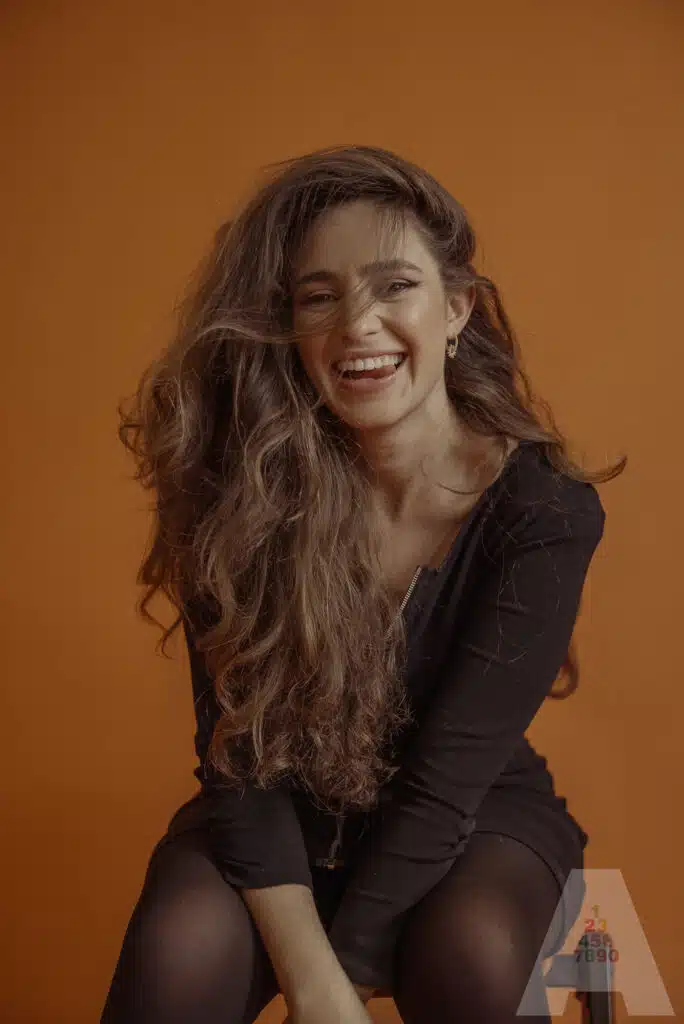
no one teaches us that resilience rises like a wildfire from pain
the battles you fight do not take away from who you are
dare to teach the world
that weakness doesn’t exist weakness
is just a seed
that no one sees
is sprouting into genius
own your story like you wrote it by yourself
Aija Mayrock, Excerpt from “Wounds like Crowned Jewels” (18-24)
Today, you can find Aija Mayrock speaking to more than 18,000 people at Madison Square Garden or touching millions of viewers on her social media channels by sharing her story through art. The 27-year-old poet was self-published by sixteen years old, released a New York Times bestseller, and is the face of campaigns with leading brands including Warner Brothers, Revlon, and Coca-Cola. Mayrock has made it her mission to help those, like herself, who have experienced bullying and a struggle with mental health. “The reason I began writing is because there were so many stories, in the news, of young people, all over the world, who had taken their life because of bullying. I knew that pain, I knew that hopelessness, and I didn’t want anyone to ever think that was what they had to do,” she shares.
Mayrock’s story is both harrowing and inspiring. It’s telling of how much our childhood experiences shape who we are, and when addressed, who we are able to become.
NS: A lot of your work and what you share online stems from your childhood. Could you share some of your story?
I lived in New York until I was 12, and then I moved to California. Growing up, I had two speech impediments and learning disabilities, but I was a regular kid, I was super creative, and I was just happy. I began to get bullied when I was eight years old. I went to a new school where people began to bully me for the way I spoke and for the fact that I learned differently. It very quickly became pretty bad. I would come to school every day and my classmates would tell me to kill myself, and that my life wasn’t worth anything and I should just end it all. That happened over and over, and it went from verbal bullying to physical bullying to cyberbullying, as social media became social currency. I didn’t really understand why this was happening or why I was being targeted. I didn’t feel that I was different. This is something that I struggled with for many years, and I didn’t really speak up for myself much because I was bullied for the way I spoke. I really suffered in silence, and my mental health was really affected because of it. But during that whole time, my one escape was to write. And for me, you know, I struggled in school. School was not something that was easy for me because of my learning differences. I didn’t really know how to get in touch with my voice because I did feel so disempowered. But the one way I was always able to connect was through writing. And so I would sit alone during lunch, and I would just write stories, and I would create fantastical worlds. And that slowly evolved more and more into eventually my first book, into my poetry, and into my career today.
You published a book at just 16 years old, what inspired you to take your writing to the next level?
I just always looked forward to creative writing in English class. It was the one thing I felt like I was somewhat good at, and I had so much fun with it. Then as I got older, I got really into rap music and I loved reading poetry. When I was 15, I had already moved to California, but I was really still struggling with the mental health repercussions of what had happened previously. One day I passed a poster for an international film festival. And I cannot tell you what drew me to this poster because I had never written a script before in my life. But I went home, and I wrote a screenplay about bullying and suicide, and the screenplay wound up winning the International Film Festival. I was 15 years old. I was the youngest person in history to win. And for me, that was a pivotal moment in my life because I realized I’m worth it. My voice has meaning, I have something to say and I’m kind of good at this. Then from there the next year, I began writing my first book, The Survival Guide to Bullying. And the reason I began writing that is because there were so many stories in the news of young people all over the world who had taken their life because of bullying. And I knew that pain, and I knew that hopelessness, and I didn’t want anyone to ever think that that was what they had to do.
You share a lot about feelings of loneliness- what helped you get through those hard times?
I think there are a few things. Number one, even though I didn’t really confide in my parents for a long time, I knew that they loved me and I knew that they were there. And even though I couldn’t break through that wall, that deep knowingness, that there were people that loved me and cared for me and didn’t want anything to happen to me, I really believe it was part of what saved my life. The other thing was that, I don’t know where this came from, but I had these really big dreams for myself as a writer, as a storyteller. And even though I allowed so many people to take my self-worth from me, to take my confidence, and my self-love- I did not want them to take my dreams from me. And I think that is also part of what saved me and allowed me to survive. So many young people who are bullied do wind up taking their life or going to self-harm. And I think that I was really lucky to have those two pillars in my life, my dreams and my family, even if I wasn’t able to communicate at that point.
What would you say to anyone experiencing what you did?
I would say that you should never, ever suffer in silence. And I know how easy it is to do that. And I know that you think that people won’t understand you, and they won’t believe you, or they won’t know what you’re going through. But I know what it’s like to think that and to adopt that mentality and live that way. And you will suffer. It might not be right now, but down the line it will all come back. There are people in your life that are there that will listen to you, that want to help you. And there are people that won’t help, and there are people that won’t understand, and you just have to keep going. I always tell young people, make a top five list of the top five adults in your life that you trust and go to them and ask for help. And you have to advocate for yourself because you don’t have to go through this alone.
What would you tell parents and/or mentors to look out for? How can adults help children going through what you went through?
I would say that when my parents really understood the scope of what happened, I was in ninth grade and we had just moved from New York to California. And a girl that I had never met who went to my old school in New York, dressed up as me for Halloween, wore a sign around her neck with my name on it, and posted it online, and it went viral in the school and in the community. And I was getting death threats and hate comments and cyberbullying at a level I had never experienced before. And to this day, even now with a following, I have never experienced anything like it. I hit my lowest place, my rock bottom in terms of my mental health and that’s when I kind of opened up and told my parents, and they understood what I had been dealing with for several years. They said, “We didn’t know” and “how did we not know?” They could not understand. And the thing is, for anyone that knows what this experience is like, it’s very easy to hide it from people in your life. It’s very easy to conceal it and to feel like, you know, “People aren’t gonna understand so why should I open up?” So I would tell parents, teachers listening that there are some signs that can indicate that something is up. For me, my grades were really bad. I never had anyone to hang out with. People would see me as sitting alone all the time, walking alone. Even my body language was very different. I changed what I was wearing. I was dealing with body image stuff and didn’t want anyone to see my body, and I was throwing out my lunch. There’s so many of these small behavioral signs that can indicate that something is up. But it is really hard to tell. And at the end of the day, I encourage parents and teachers to just start chipping away at that kind of emotional wall that a lot of young people build to protect themselves.
Why do you think poetry is healing?
For me, poetry is this really powerful form of self-expression where you could convey a message and people can feel it in their bodies when they hear it based on the way that your voice, the way you use your voice, the way that certain words rhyme. I realized that it was such an unbelievable tool to communicate, open up conversations on big, heavy subjects, and relate to others. There have been a lot of messages I’ve gotten where people have said things like, “Your writing,” or, “Your book has saved my life.” And it’s so … I can’t really fully feel that because that’s such an enormous thing to say. It’s really hard to process that. But if my writing was able to make someone feel a little bit less alone or a little bit heard or seen in some way, I mean, that is the ultimate dream for any writer.
Why is it so important for people to be aware of their childhood and how it impacts them?
I think that what happens to us in childhood will follow us for the rest of our lives, whether or not we deal with it or not, and all of us go through some version of difficulty. Some are much, much more severe than others, and I think that part of the reason that we live in a world with so many problems is because people have not been able to deal with or to heal that trauma for a variety of reasons. I think it’s really powerful to find different methods and outlets to talk about childhood trauma and experiences because it is such a universal thing, and you’d be surprised how one experience can connect you with another human being on the other side of the planet because all of our experiences, however different or severe or less severe they might be, all are united in some capacity. But I don’t think that any of us can ever reach that stage of being fully healed, but it is a journey for all of us to continue on that path of healing and to find different methods that are healthy for all of us to express ourselves and to deal with different aspects of our life experience.
What else do you do when you feel anxiety or going through a hard time?
Outside of spoken word and writing, I love to dance. I love to go to concerts. I love to travel. I love to cook. I love to do like outdoorsy sports like mountain biking and hiking and paddle boarding. I don’t know. I just love being in my spirit and like feeling fully alive. Whenever I am feeling stressed or overwhelmed, I do something that releases that. I love endorphins, and I love adrenaline. And something else I do that is not creative but is hugely meaningful to my life is every week I volunteer with Holocaust survivors in Brooklyn who live below the poverty line. They’re 88 to 105 years old. And they’ve inspired a lot of my work. They’re also just incredible people that I love spending time with.
What does resilience mean to you?
When I hear the word resilience, I think of this line that I wrote in the Survival Guide to Bullying, which is that it’s not about what knocked you down, it’s about what makes you stand up. And actually, it makes me think of boxers often. Just the ability to get back up and to keep going and to keep trying.
Thank you, Aija, for sharing your story!
This interview has been condensed and edited for clarity.

It’s that time of year again, and I am sure you have noticed how fast the Holiday season is taking over stores. For some, this can trigger the body and create stress or dread….
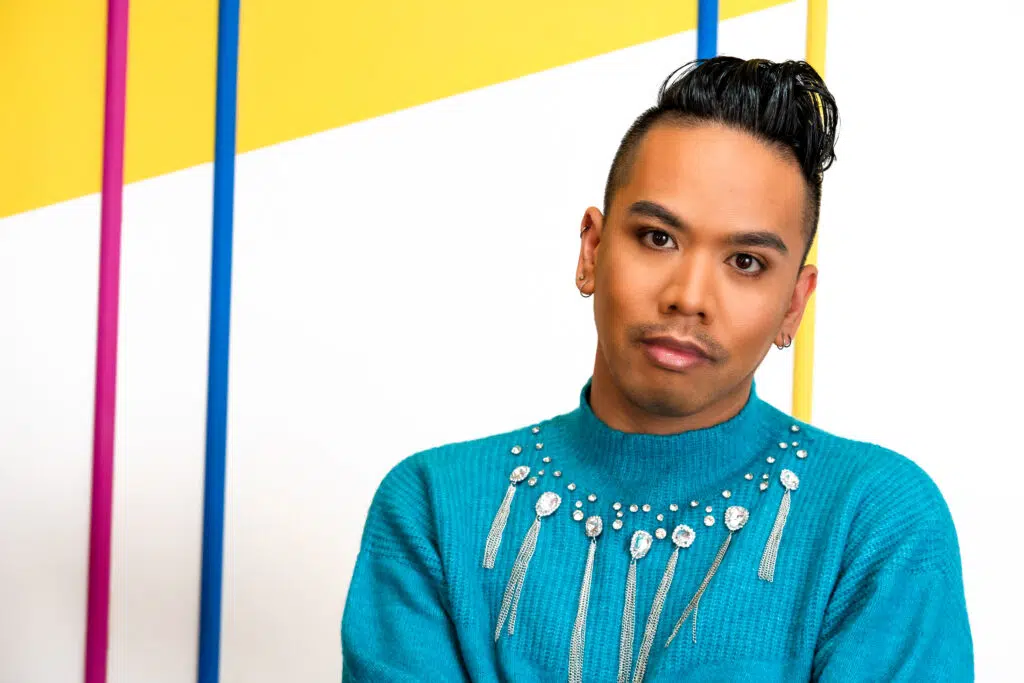
[Content warning: Suicide.]
In recent years, during the month of Pride, I’ve always been extremely excited about the celebration—the glittery and colorful extravagance all throughout the month of June.
However, this year, I’ve taken a pause to really understand my journey, the one I’ve taken individually and the one the queer community is on at the moment. I feel blessed to live in West Hollywood in Los Angeles, one of America’s queer-friendly meccas, though the sparkle in my heart has dimmed as I feel increasingly more concerned for my community across the country where our safety, protections and rights are all at risk. Unfortunately, none of us are safe.
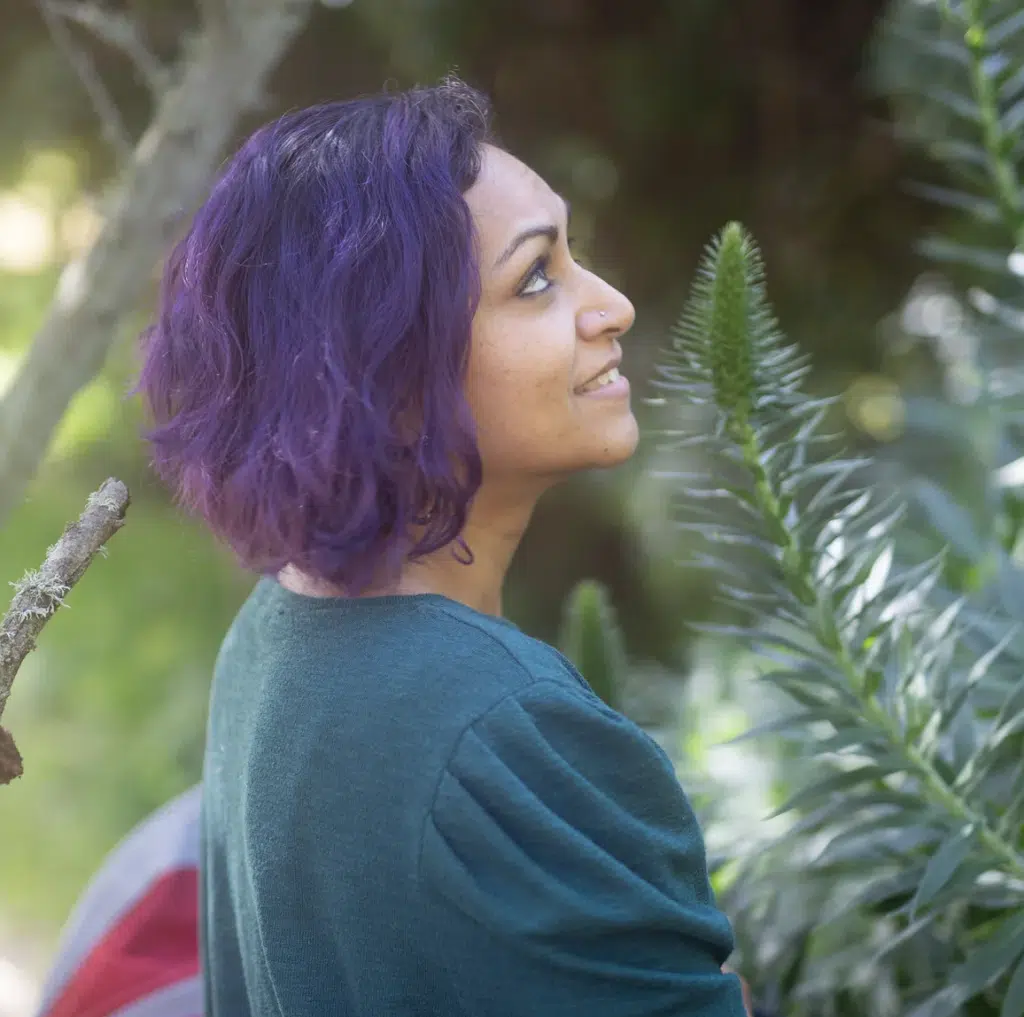
I’ve lived with bipolar disorder for the last 13 years. Though the initial years were brutal, once I understood my triggers and what it takes to stay well, I’ve been privileged to have stayed healthy for much of the last decade. This included — to my relief — my first pregnancy and post-partum period and serving in high-intensity public health roles through the pandemic, as California’s Acting Surgeon General and previously the office’s first Chief Health Officer.
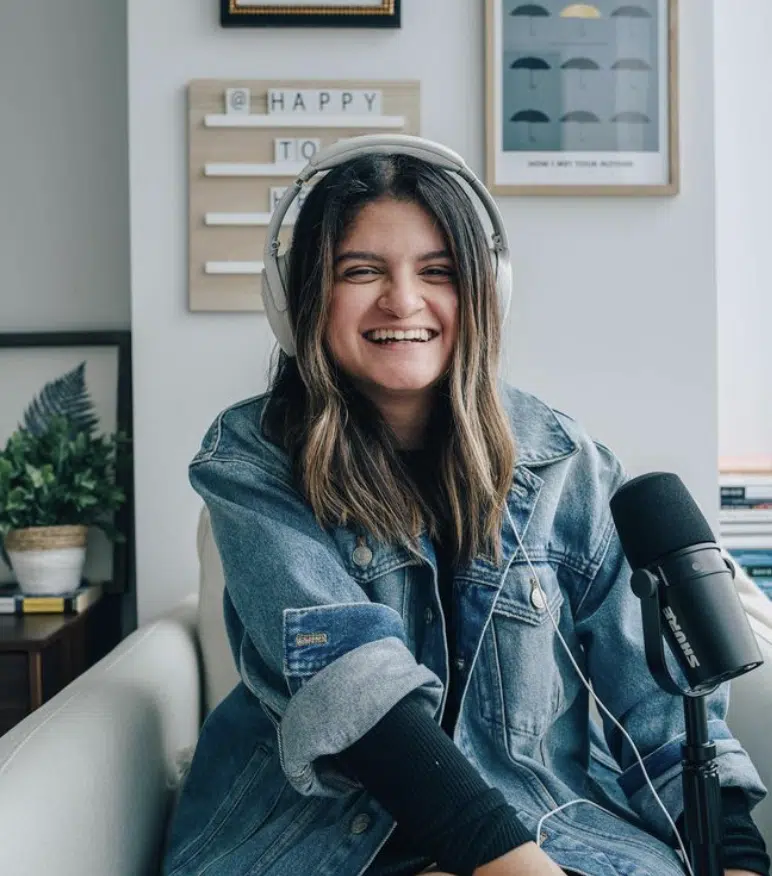
I love music. Recently, I was listening to a random playlist Spotify generated for me when a song titled “Before I Have A Daughter” by Bre Kennedy started playing. Bre Kennedy sings about building a garden that grows on the same ground where tears have fallen and hearts have also been broken. Her goal is to learn to tend to this garden so that it flourishes on both the good and bad days.

¡Ayúdanos con tus opiniones sobre esta encuesta de 3 preguntas!